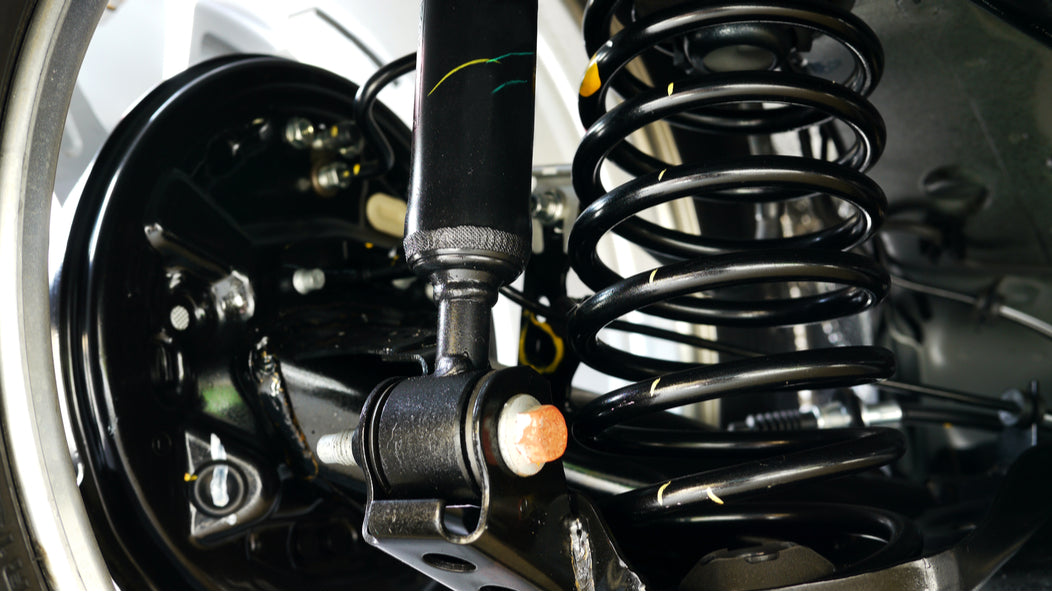When Should You Replace Your Springs--Signs and Indicators
Whether you drive a lot or a little, you probably take your car's springs for granted. This phenomenon is a fact of life across the board, and on a day-to-day basis there's nothing wrong with it.
But it's not a solid long-term strategy when it comes to extending the life of your vehicle, and the simple fact is that you ignore the state of your car's springs at your own peril.
Springs may not pop up as readily on your maintenance to do list-shocks tend to be substituted on most of those lists-but knowing when to swap out your springs is essential if you want to keep your car running well for a long time.
Given all that, let's look at what's involved. We'll start with a brief look at what your springs do, then dive into some of the wear-and-tear issues. That will lead into a guide on what to look for and when to have them replaced, and we'll give you some suggestions about the replacement process itself and the decisions you'll need to make.
The Basics About Your Car Springs
The first question will deal with is about how springs are designed. Most cars have shocks in the rear, along with a combination spring and strut assembly up front.Struts and shocks basically work the same way, and the big difference in the front and rear setup is the presence of suspension springs up front.
Suspension springs work hard all the time, i.e., they help absorb the body weight of a non-moving vehicle. They're made from coiled steel, and they're usually painted to add protection from rust and overall deterioration.
They're not immortal, though. Over time they'll sag and lose some of their bounce, but they rarely fail outright.
The risk associated with this boils down to two possibilities-an accident, or the failure of another suspension component. That failure can affect the suspension springs, and if the paint starts to wear off they may be susceptible to rust, corrosion and exposure to the elements.

There are some obvious signs of failure you should look for that will help with this process. These include a car that leans visibly to one side, or a rougher ride quality that includes bottoming out on corners, erratic steering, and a noticeable side-to-side travel in your tires, especially at high speeds. Other signs include a visibly broken coil spring, or if you can see rust or deterioration during a surface examination.
If any of this sounds familiar, you should have your mechanic to a thorough examination of your suspension. That inspection will give you a confirmation that you need to replace your suspension springs. The timeline for this kind of deterioration and possible failure varies, of course, but springs don't usually fail or produce noticeable problems for at least the first five years of a vehicle's life.
The exception is an accident in which there's serious damage, and if this occurs that examination of the suspension should occur right away.
Replacing Your Springs
If you do need to have your springs replaced, the good news is that it's generally a fairly straightforward job. It can be costly, however, so one option if you have an older vehicle is to look at the possibility of using aftermarket parts.
You should definitely work closely with your mechanic if you're considering this. You may get a recommendation to go with OEM parts if the damage isn't extensive, but this kind of recommendation will likely vary according to the make, model, size of the vehicle, mileage, driving patterns and so on.
You should also know that there are other parts and springs in your car's suspension system that may be part of the replacement job. These include the leaf springs, the torsion bar springs and other related assemblies, and your mechanics may recommend replacing these as well if there's extensive wear and tear or damage from an accident.
If you do need aftermarket parts, there are plenty of possibilities when it comes to finding the right ones, and online shopping is definitely a solid option, especially if your mechanic is guiding you through the process.
One of the best is PartsMax, which has specialty parts, an extensive inventory and the expertise to steer you through the buying process.
If you happen to be in South Florida, PartsMax services the Miami, Fort Lauderdale and West Palm Beach areas, so you can visit us at our office, which is located at 3401 NW 73rd Street in Miami, or call us tool free at 305 694-6112 to get the advice and expertise you need.


